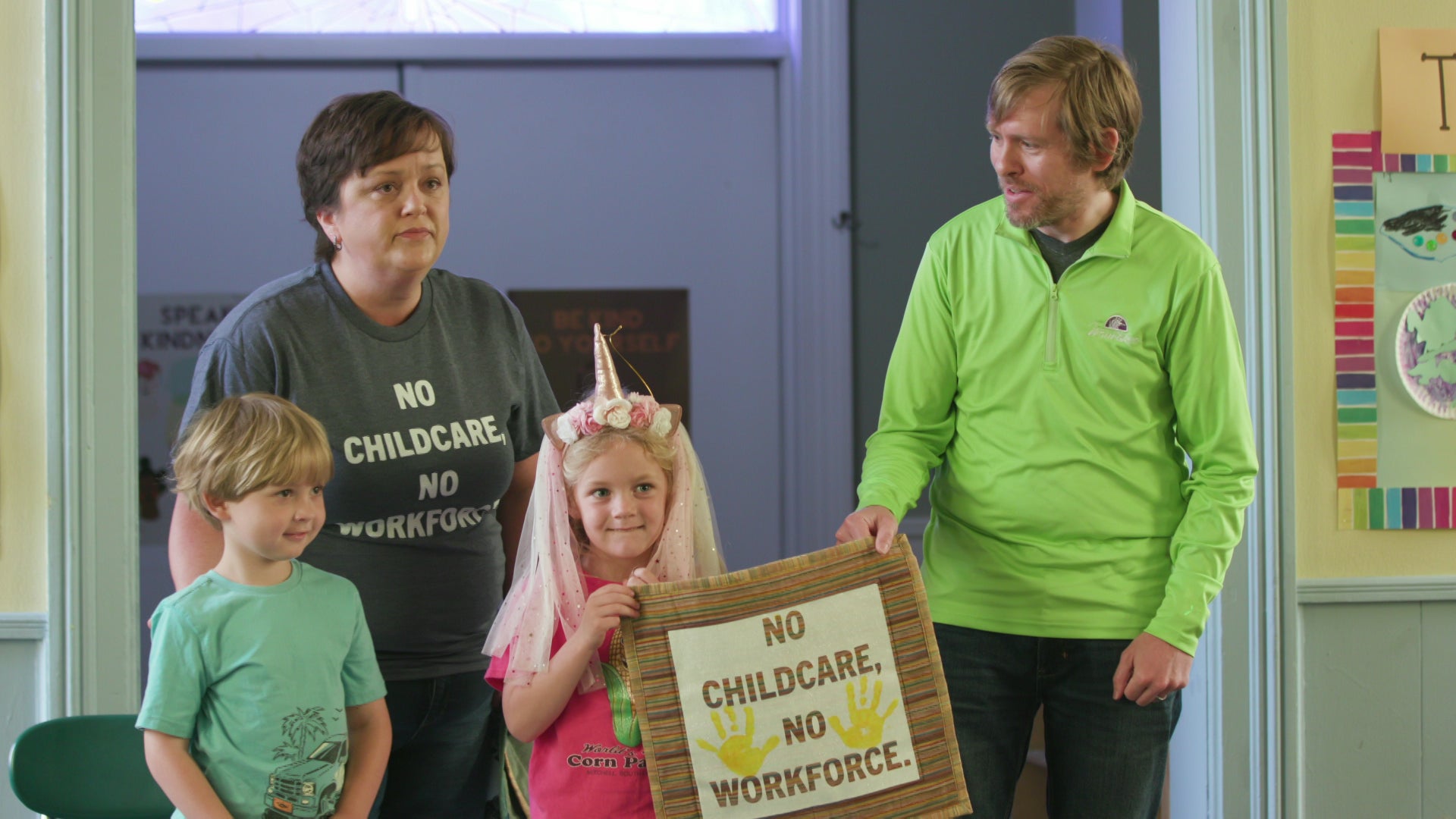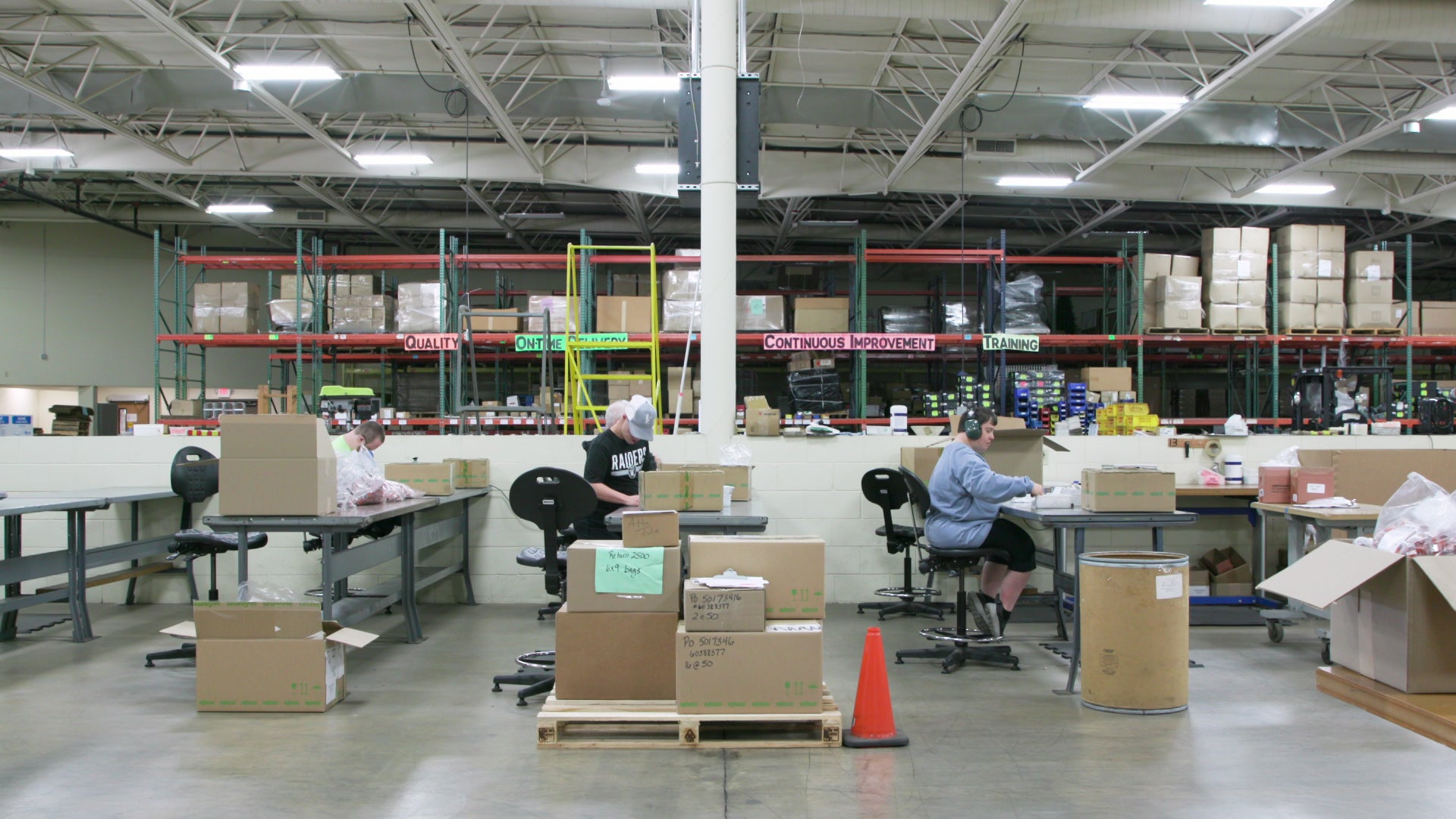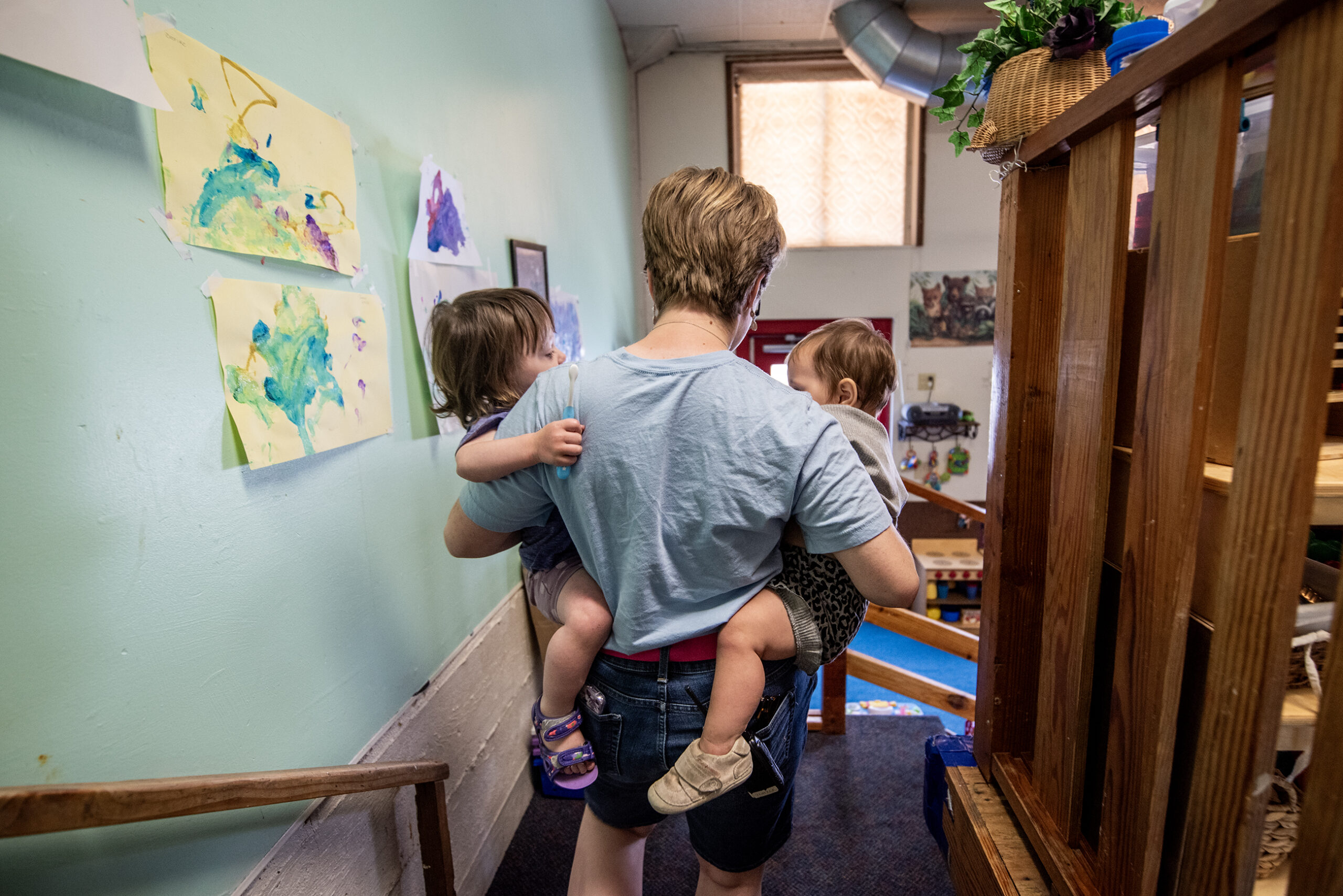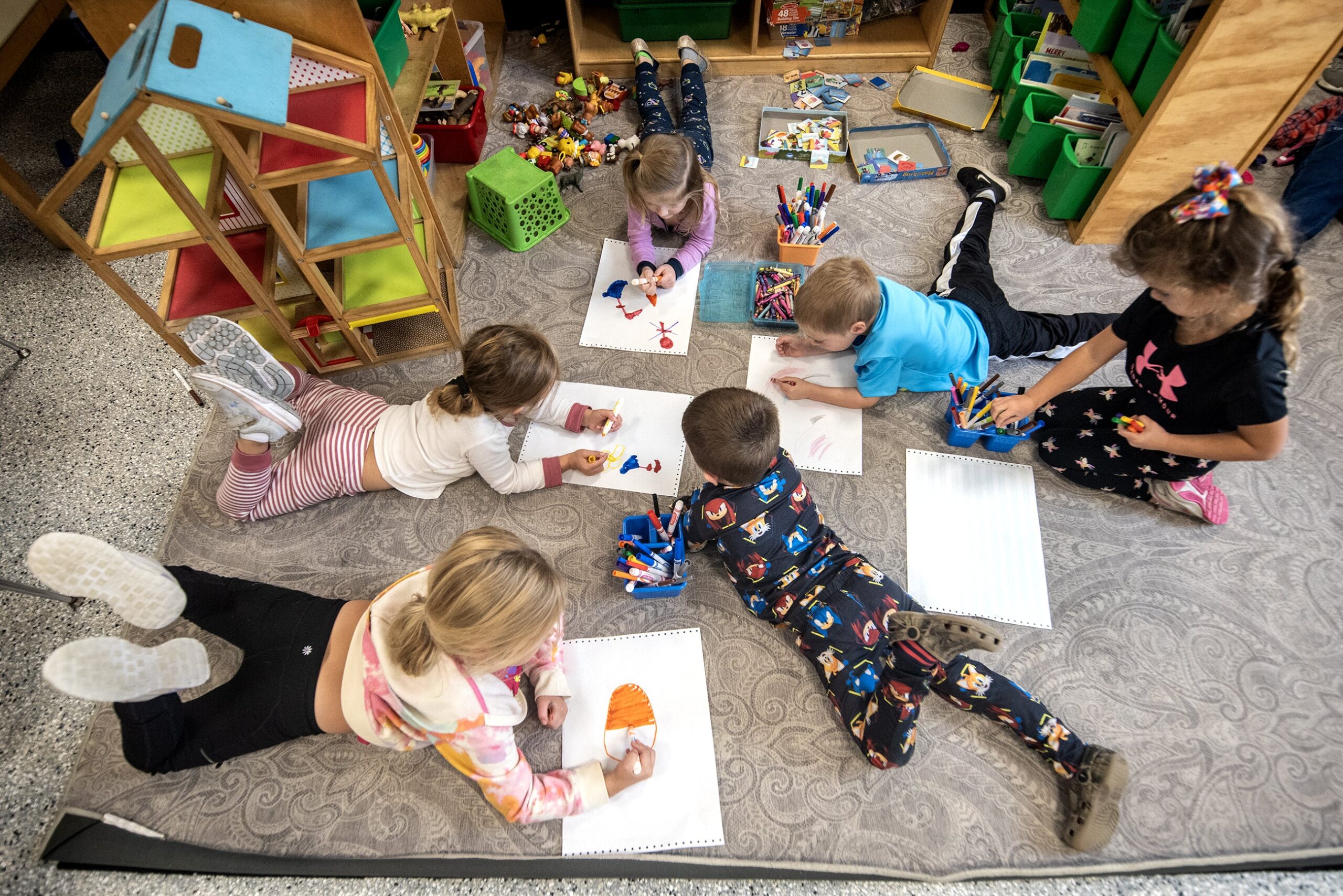Before the 2024 election, WPRis asking people through the America Amplified initiative about what elected officials could do to improve their communities. Paula M. Drew from Madison reached out with a suggestion about state funding for child care. PBS Wisconsin’s “Here & Now” is collaborating with WPR to help respond to these questions.
“Where are your parents while you’re here?” Heather Murray asked a group of children.
Stay informed on the latest news
Sign up for WPR’s email newsletter.
“At work,” replied one.
“They’re at work, right?” said Murray, who is owner of Arthouse Preschool in Waunakee, a suburb of Madison.
On May 13, 2024, she explained to her students why they’re observing “A Day Without Child Care.”
“A lot of kids in Wisconsin and across the country do not have a place to play or to learn. So we’re here to talk about that today,” she said.
Waunakee Village Board member Robert McPherson described one action being taken at the local level.
“We created the Waunakee child care providers assistance program,” he said.
The program invests $85,000 into the local child care industry.
“Really, what it means is it helps us at the village to be able to help the child care providers within the village to help pay for provider services,” said McPherson.
Murray got the idea for Arthouse Preschool in the mid-2000s.
“I started out as an elementary school teacher, and then started this center when my youngest was about 14 months old, wanting quality child care for my own kids,” she said.
Since the COVID-19 pandemic, Murray has been advocating for increased state support for child care.
“The state of Wisconsin received close to $800 million in COVID relief money that was to be directed to child care. That is what allowed us to keep our industry going,” said Ruth Schmidt, who runs the Wisconsin Early Childhood Association, or WECA.
That pandemic relief money came through a state program called Child Care Counts. The Waunakee child care providers assistance program aims to mirror Child Care Counts on a local level.
“For me, it does two things. It’s a step in the right direction and an acknowledgment that this industry needs financial support,” Schmidt said.
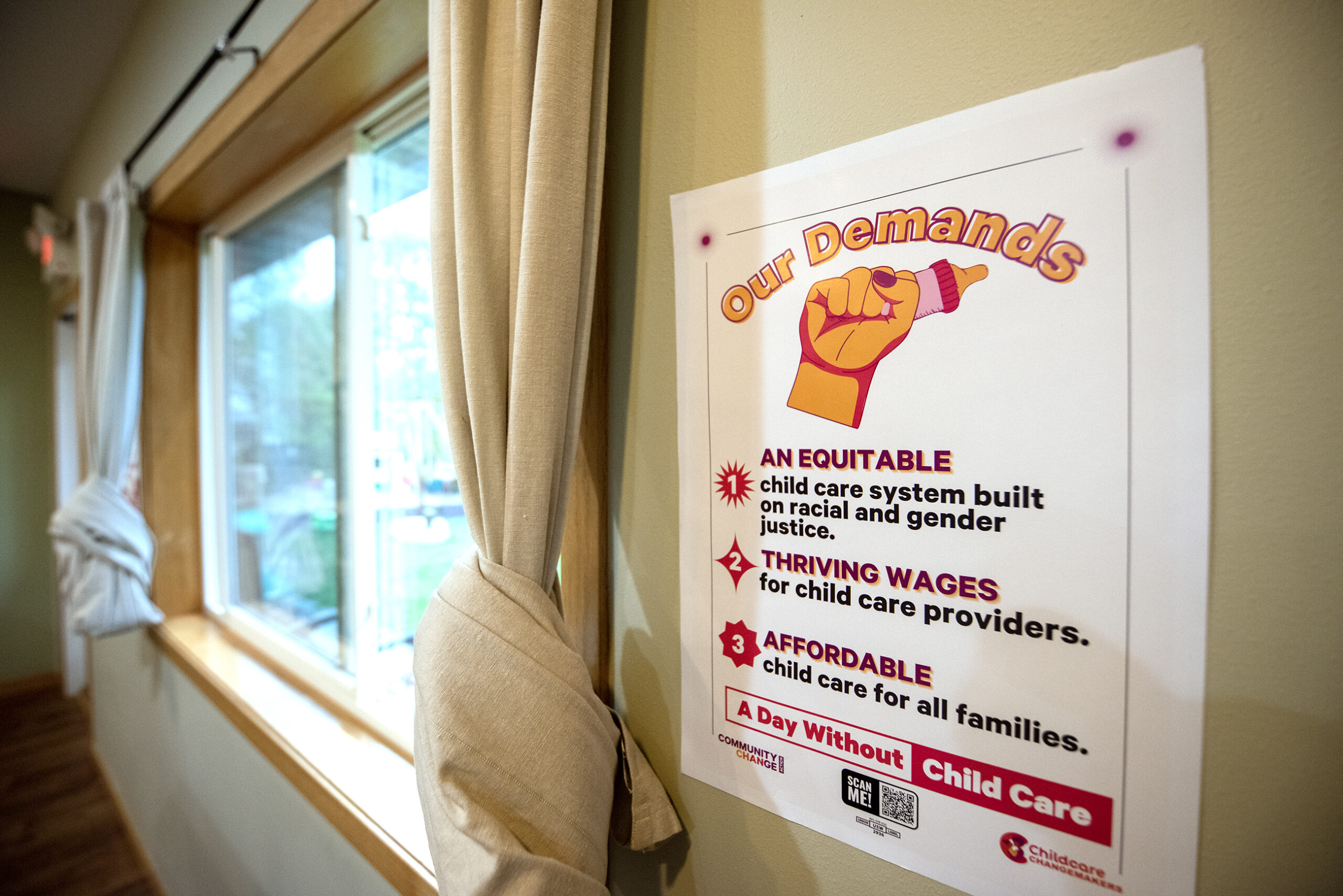
“Both my husband and I work full time. Both of us have careers that are important to us. And neither of us were really interested or at a point where we thought it made sense for our family to stop,” said Amy Kloppenburg, who has two sons that attend Arthouse.
She makes the 12-mile drive to Waunakee from nearby Madison twice a day for her kids. It hasn’t been easy.
“I contacted — and I’m not exaggerating — I contacted 35 day cares, both on Madison’s east and west side. And then I finally started reaching out farther than Madison,” Kloppenburg said.
Finding child care is stressful and at times complex for parents asking if there is child care in their area. If there is, is there availability in the classroom? If so, can they afford it?
“When I raised tuition, I had two families that decided it was better if they stayed at home, financially,” Murray said. “So we’re essentially pricing some families out of child care.”
“I’m working hard to make sure that you all have enough toys, enough books, enough teachers,” said state Rep. Alex Joers, D-Middleton, who represents Waunakee in the Assembly. He attended the Arthouse event with his newborn daughter, Emme.
“I put forward legislation to continue the Child Care Counts program at an amount of $350 million. And that’s just a drop in the bucket compared to the…$3 billion surplus that we have in the state,” Joers said.
During the 2023-24 legislative session, Republican lawmakers rejected the bill introduced by Joers, as well as proposals by Democratic Gov. Tony Evers to invest state money into child care.
Instead, Assembly Republicans passed a package of bills to address the profitability of child care centers. Part of that plan called for a loan program to help child care centers to pay for renovations, and changing the minimum age for entry-level positions from 18 to 16.
Evers vetoed all but one bill in that package, which expanded a tax credit program for child care expenses.
The political standoff means government support is ending.
“We’ve seen the Child Care Counts money be greatly reduced over the years, and we will see it expire next year,” Joers said. “So the money that’s being used at the state level is just enough to keep the doors open.”
Murray said state funding is actually less than what providers like herself need to keep centers open. Overwhelmingly, she is seeking more money to pay her employees a fair wage.
“We need investments from the state to be able to maintain the staff we have now and the salaries that they’re getting,” she said.
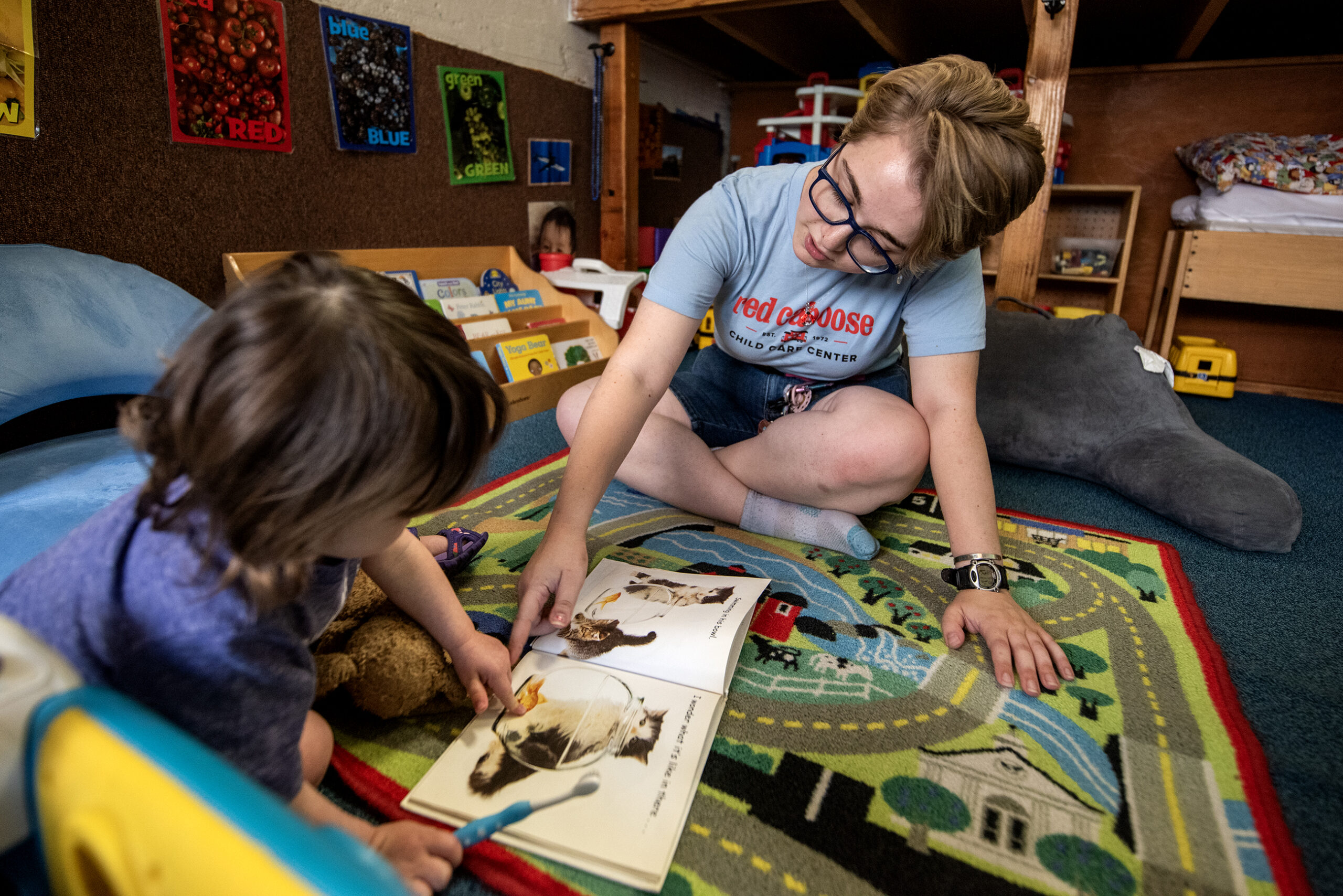
“We — at the village — we’re helping just out for a couple months,” said McPherson, who described Waunakee’s investment as a stopgap measure, not a permanent subsidy.
“We think that’s how much funding that we’re going to have, but we’re hoping that state and federal resources will come together and continue to provide for child care providers, because this is really something that we need,” he said.
Surprisingly, the families getting priced out are not the low-income ones.
“We’re losing that middle section, right? We still have supports for low-income families,” Schmidt said. “And we still have high income families that can afford care.”
Waunakee has many families that fall into that middle section.
“When my child was born, we couldn’t find child care for the first six to eight months of her life — and that meant that I couldn’t go back to work,” McPherson said.
“It shouldn’t just be for people who have a partner, that both people work,” said Kloppenburg. “People should be able to live and work and have care.”
PBS Wisconsin is partnering with Wisconsin Public Radio and the America Amplified election reporting initiative. America Amplified is a collaboration among several dozen public radio stations across the United States funded by the Corporation for Public Broadcasting, focusing on what issues matter most to people in 2024.
PBS Wisconsin’s “Here & Now” is connecting with people and issues with the help of WPR to connect with and better serve Wisconsin’s voters. What information do you need about how to vote? What do you wish candidates were talking about? Tell us what issue matters most to you and your community here.
More reporting by Wisconsin Public Radio for the America Amplified initiative is available here.
Wisconsin Public Radio, © Copyright 2025, Board of Regents of the University of Wisconsin System and Wisconsin Educational Communications Board.
